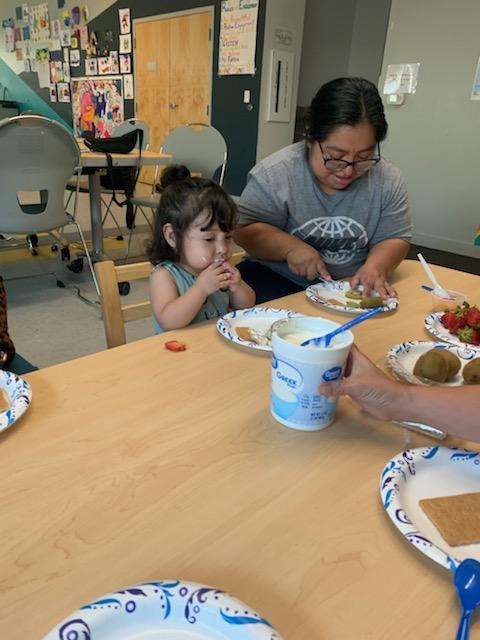In today’s fast-paced world, fostering healthy relationships with food in children is more critical than ever. As parents and caregivers navigate a landscape saturated with convenience foods and mixed nutritional messages, the challenge of instilling positive eating habits can seem daunting. Yet, the foundation for lifelong health and well-being is often laid during childhood. This article delves into the complexities of children’s interactions with food, examining the psychological, social, and environmental factors that influence their dietary behaviors. By understanding these dynamics, we can develop effective strategies to guide children towards a balanced approach to eating, empowering them to make informed choices that will benefit their physical and emotional health for years to come. Through an analytical lens, we will explore evidence-based practices and expert insights, providing a roadmap for nurturing a generation that values and enjoys nutritious food.
Understanding the Psychological Impact of Food on Children
Children’s early experiences with food can significantly shape their long-term attitudes and behaviors towards eating. It is essential to understand that food is not just a source of nutrition but also plays a crucial role in emotional and social development. Encouraging a healthy relationship with food involves a multifaceted approach that addresses both psychological and environmental factors. Parents and caregivers can start by creating a positive and stress-free dining atmosphere, which can help children associate mealtime with comfort and enjoyment rather than anxiety or pressure.
- Model positive behavior: Children learn a lot through observation. Demonstrating balanced eating habits and expressing a positive attitude towards a variety of foods can encourage them to follow suit.
- Empower through choice: Involve children in meal planning and preparation. This not only educates them about nutrition but also gives them a sense of control, reducing resistance and fostering a sense of responsibility.
- Encourage mindful eating: Teach children to listen to their bodies by recognizing hunger and fullness cues. This practice can prevent overeating and promote a healthy connection between food and self-awareness.
By incorporating these strategies, parents and caregivers can help children develop a lifelong healthy relationship with food, one that is based on understanding, enjoyment, and respect for their body’s needs.

Cultivating Positive Food Experiences Through Family Engagement
Fostering a healthy relationship with food in children is a journey that involves the entire family. Engaging in meal preparation together can be a powerful tool. By involving children in cooking, they not only learn valuable life skills but also gain an appreciation for the effort that goes into preparing meals. Encourage children to help with age-appropriate tasks, such as washing vegetables or mixing ingredients, which can boost their confidence and make them more likely to try new foods.
- Lead by example: Demonstrate healthy eating habits and attitudes towards food. Children are more likely to follow suit when they see their family members enjoying a balanced diet.
- Create a positive mealtime atmosphere: Make family meals a time for connection and conversation, free from distractions like television or smartphones. This fosters an environment where children feel comfortable exploring different foods.
- Incorporate food education: Discuss the nutritional benefits of various foods and involve children in planning balanced meals. This empowers them to make informed choices as they grow.
By making food a family affair, you not only nurture healthy eating habits but also strengthen family bonds. This holistic approach to food engagement is key to developing positive food experiences that last a lifetime.

Implementing Educational Strategies to Promote Nutritional Awareness
- Interactive Learning Modules: Integrate technology-based tools that allow children to explore nutritional concepts through games and simulations. These modules can include virtual cooking classes, interactive quizzes, and role-playing scenarios where children make food choices and see the immediate impact on their virtual characters. By making learning fun and engaging, children are more likely to internalize healthy eating habits.
- Hands-on Workshops: Facilitate workshops where children can participate in preparing simple, nutritious meals. Encourage them to explore different ingredients and flavors, fostering a sense of curiosity and openness towards new foods. This practical experience not only boosts their confidence in the kitchen but also helps them appreciate the effort and care that goes into preparing a balanced meal.
- Storytelling and Role Models: Utilize stories that highlight the journey of food from farm to table, emphasizing the importance of each food group in a balanced diet. Invite guest speakers such as chefs, nutritionists, or even athletes to share their personal experiences with food, helping children to see the real-world application of nutritional knowledge and inspiring them to emulate positive eating habits.
- Community Involvement: Organize community events such as farm visits, local food festivals, or gardening projects. These activities connect children with their food sources and highlight the cultural and social aspects of eating. By fostering a community-focused approach, children learn the value of sustainability and the impact of their food choices on the environment.

Addressing and Preventing Negative Food Behaviors in Early Childhood
Understanding the roots of negative food behaviors in early childhood is crucial to fostering a healthy relationship with food. Often, these behaviors stem from a variety of influences, including family dynamics, cultural norms, and media exposure. It’s essential to create an environment where children feel comfortable exploring different foods without pressure. This can be achieved by incorporating positive reinforcement and allowing them to be part of meal preparation. Encourage open conversations about food preferences and respect their choices, which can build a foundation of trust and autonomy.
- Model healthy eating habits: Children learn by example. Display a balanced approach to food and avoid labeling foods as “good” or “bad.”
- Create a routine: Establish consistent meal and snack times to help children understand hunger cues and promote self-regulation.
- Make food fun: Introduce new foods through games and stories to make the experience enjoyable rather than daunting.
- Involve children in meal planning: Allow them to choose a new fruit or vegetable to try each week, fostering a sense of ownership and curiosity.



